SIT alum José Alfaro organizes Latinx communities around gun violence
July 6th, 2022 | Careers, School for International Training, SIT Graduate Institute
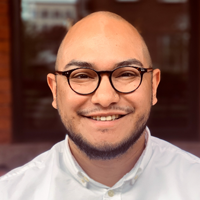
"The framework I use most is the social justice lens I developed at SIT. [It] has allowed me to advocate for the right voices at the table and is the skill I cherish most from my education."
Like many students, José Alfaro came to SIT Graduate Institute with the idea of pursuing a career abroad. But the conversations and coursework around issues that people face globally—like food and water insecurity, education equity, and access to health care—took him down a different path.
Growing up in a low socioeconomic community in the Jamaica neighborhood of Queens, New York, José was familiar with those issues. After earning a psychology degree at Morgan State University, an HBCU in Baltimore, Maryland, he went into community engagement work and “fell in love” with the field.
As he completed his MA in Intercultural Service, Leadership, and Management at SIT in 2010, José’s background, education, and passions came together in the decision to stay in the United States and put his skills to work on deeply entrenched social and political issues, many of which are even more polarizing in our current political climate.
Today, José is founding director of Latinx Leadership and Community Engagement at Everytown for Gun Safety. His work centers on movement-building, policy advocacy, and electoral campaigns with an anti-racist, community-centered approach. We spoke with him about the challenges of this work and how he continues to confront an uphill climb.
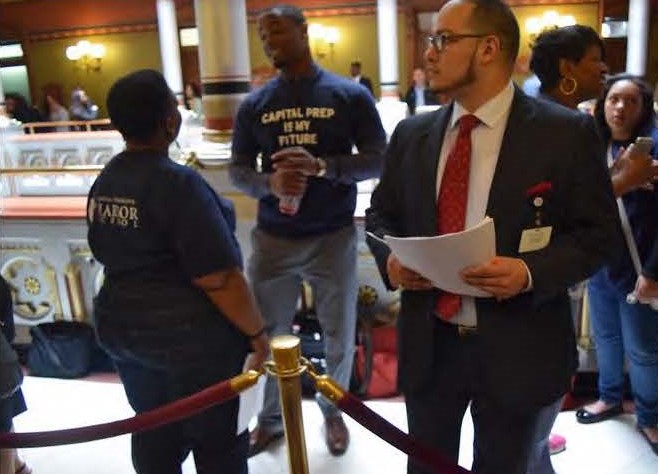
What drew you to—and keeps you engaged in—community organizing?
I had taken a few electives in undergrad in sociology and communications, and I had some fantastic professors who taught me about community organizing in Baltimore City. I learned about the movements around police brutality, the war on drugs, and the lack of investment in infrastructure in Black communities in the city. It reminded me of the things I experienced at home in New York City. At Morgan, I met Black and Brown people from across the United States. I realized that the same issues I experienced at home were similar to other low-income communities of color across the U.S.
What keeps me in this work is the impact that I see communities have when we organize and win against systems that seek to deny us our rights and freedom.
While at Morgan State, I founded The Baltimore Project, a community service initiative that sought to tackle some of the issues that Baltimore residents faced through volunteer engagement. After undergrad, I became a community educator around sexual assault and domestic violence in Baltimore. Those experiences laid the foundation for how I engage communities to move them into action.
I decided to go to graduate school to understand systems of oppression on a global scale and gain new skills. Since then, I’ve worked on various issues that impacted the most marginalized. I organized gang members to fight for social change, parents around education advocacy and electoral campaigns in Connecticut, and Latinx communities around reproductive rights and justice with the Raíz program, Planned Parenthood of America’s effort to organize and build power in Latinx communities.
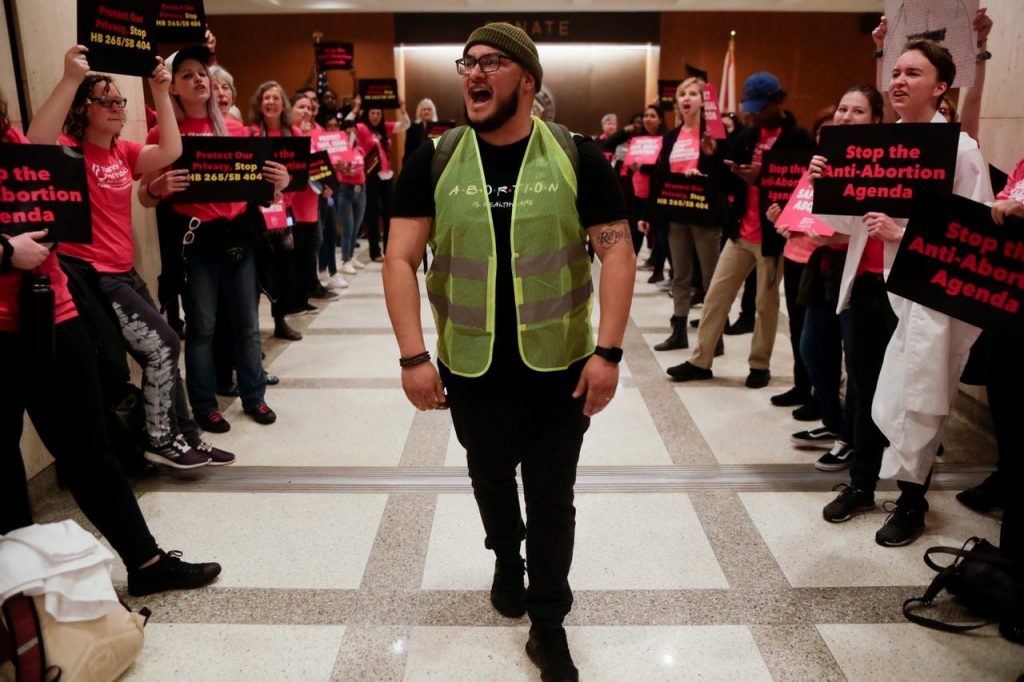
Time and time again, I see communities that are often taken advantage of and outright disregarded when decisions about their lives are made for them. And time and time again, I see everyday people working and growing to do extraordinary things. What keeps me in this work is the impact that I see communities have when we organize and win against systems that seek to deny us our rights and freedom.
Those are all very intense and difficult issues. Does it sometimes feel like you’re taking two steps forward and one step back?
I believe that a part of surviving in this work is to look at the gains we’ve made while understanding the bigger picture and fighting for the world we want to see. There are small wins at the local, county, and state levels and a significant push for issues to create an impact on a national scale. Depending on the issue, we’ve seen gains, but there is still a long way to go. In the abortion rights space, the Supreme Court overturning Roe v Wade is detrimental to ensuring people's bodily autonomy. It’s a devastating time that we live in for several issues, so we have to keep fighting and organizing more than ever before. We are at yet another point in this country’s history that will define the rights and experiences of the next generation of people living in the United States. We can’t sit back and do nothing.
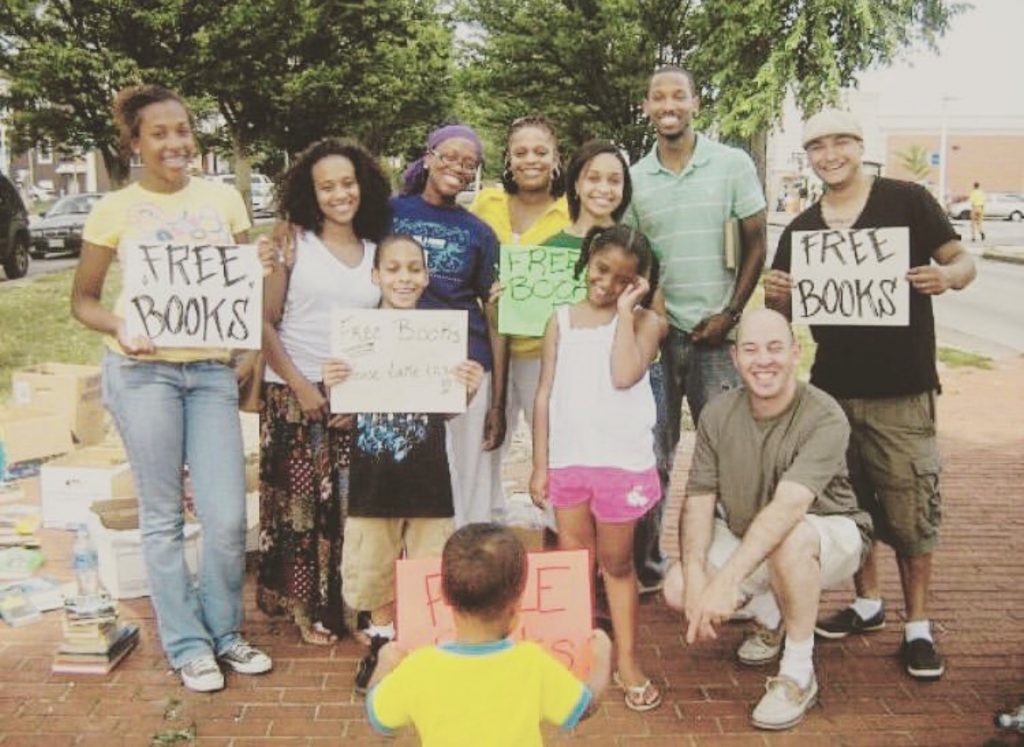
It seems like gun violence is a thread that runs through a number of issues you’ve worked on.
I came to Planned Parenthood in 2017 after a few years in education advocacy to join the fight to push back against the Trump administration, and Planned Parenthood was the best place to do that, to work against attacks on women, the LGBTQ community, and Latinx communities. We engaged in a four-year fight, and by the end of the 2020 electoral cycle, we had done what we set out to do: out President Trump. I decided it was time to look at new opportunities for growth and impact.
We are at yet another point in this country’s history that will define the rights and experiences of the next generation of people living in the United States. We can’t sit back and do nothing.
I was approached about the director of Latinx engagement role at Everytown; it was the first of its kind in the gun violence prevention movement on a national scale. When I was pitched the position, I had to sit and think about the intersectionality of the movements I had been part of—police brutality, domestic violence, education, and sexual and reproductive rights. I realized all had been at the intersection of gun violence the whole time. It was an excellent opportunity to bring the skills I had learned over the years in various roles and movements to the gun violence prevention space. It felt like this was the right move to make.
How long have you been doing this now?
A year and a half.
What messages do you take into Latinx communities to mobilize people?
The Gun Violence Prevention movement is relatively young compared to other movements I’ve worked in. It’s only within the last decade or two, and we have made some headway. Because there hasn’t historically been a focus on this community, there is very little that we know about the impact of gun violence on the Latinx community and how to talk to these communities about gun violence.
But we do know that Latinx communities are disproportionately impacted by gun violence: 4,100 Latinx people die yearly from gun violence across the United States. We are four times as likely to be killed by a gun. Children and teens are three times as likely to be killed by a gun than their white peers; it is now becoming the leading cause of death for Black and Brown children in the United States.
Latinx communities have become a giant electorate to engage. They hold immense political power to influence elections and policy. From a strategic standpoint, organizations are looking at ways to focus on this new political energy.
However, that doesn’t account for undocumented communities, police misreporting, or the lack of trust that the community has in law enforcement. That’s why we are hosting listening tours across the United States to understand better how they perceive gun violence and safety. The other thing is that Latinx communities have become a giant electorate to engage. They hold immense political power to influence elections and policy. From a strategic standpoint, organizations are looking at ways to focus on this new political energy.
And how will you do that?
The first thing is to ensure that our communities have the resources to be informed about the issue and de-stigmatize the conversation about gun violence. Secondly, we should create a narrative around the issue based on what we learn from our field discussions, Latinx advocates, survivors, and gun owners, to ensure that messages resonate with them.
We’re also identifying who the champions are—Latinxs willing and able to take on this issue and start having more conversations in community. We must make gun violence an issue that we should fight, and hold our legislators accountable. That requires organizing and building political power to ensure no more Latinx people are impacted by gun violence—not one more suicide by gun, not one more person shot in the street by police violence, and not one more woman killed by a partner.
I understand your point about organizing within specific communities, but isn’t there also a need for organizing across communities and issues?
Definitely, as I mentioned earlier, we’re hosting a national listening tour to bring together leaders from several organizations and movements to look at the intersectionality between this issue and other issues like climate justice and reproductive rights, those organizing in low-income and immigrant communities, folks along the border including gun owners. They have a unique voice in this movement, and it’s vital to better understand how they view and interact with guns.
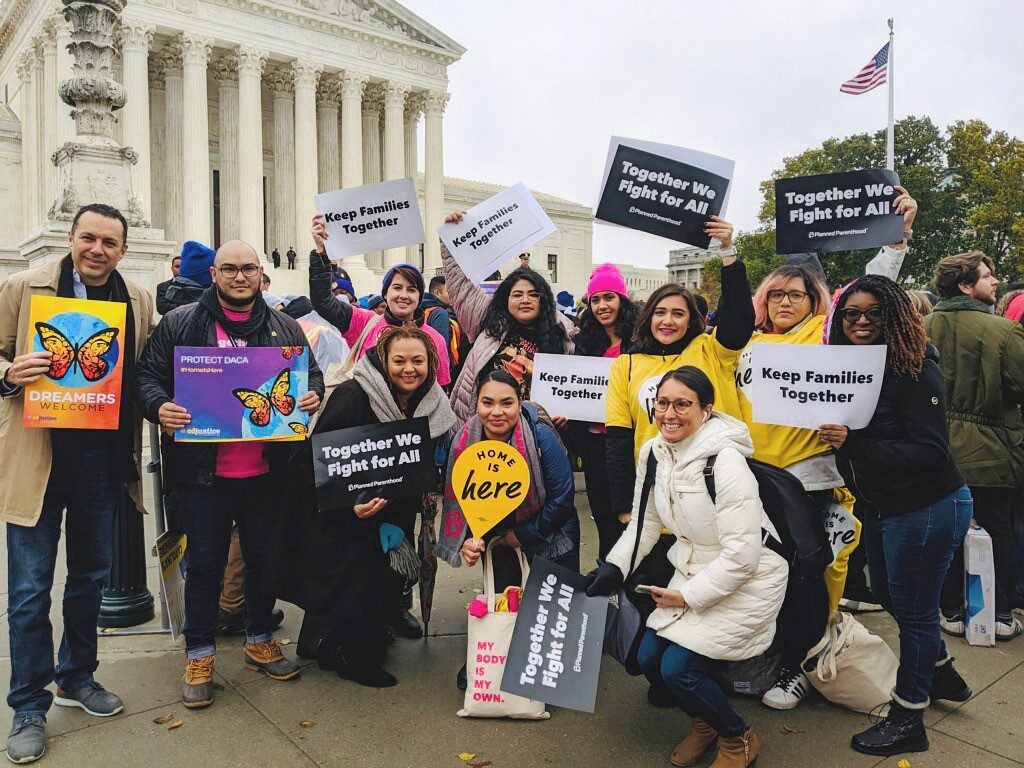
We’re hosting a national listening tour to ... look at the intersectionality between this issue and other issues like climate justice and reproductive rights, those organizing in low-income and immigrant communities, folks along the border including gun owners.
We had our first listening session in Orlando six years after the Pulse nightclub shooting. We’ve been in rapid response mode since the Uvalde shooting and had to take a break, but we will be relaunching these later this summer. These are closed listening sessions for a select number of organizations, including survivors, that we hope will give us insights into a safe and controlled environment outside the media spotlight.
And on a personal level, how do you keep going?
A lot of this is ensuring that I have a good community supporting me. That includes members of my SIT cohort, friends, and family members I count on to share how I’m feeling and who send messages of support and love and remind me to take care. My wife, more importantly, who bears the brunt of me not being home, is continuously checking in with me and cheering me on because we know how important this work is. I also have a meditation and prayer practice, and I lean on my ancestors to guide me and remind me that I am serving my purpose.
You mentioned your SIT cohort. Can you talk about your SIT experience and how that factored into the work you’re doing now?
Like many SITers, I felt the need to serve in an international capacity, but in classes and discussions, I found my voice for serving my community here at home. I learned about conflicts between ethnic groups in faraway lands and thought about gang conflicts in my neighborhood; I read about the lack of access to clean water and thought about the countless Native people who lack that same access here. I learned about organizations trying to bring education access to places in Latin America and other colonized nations. I thought to myself: All of these things are happening in my backyard, in some of the communities I came from.
What grounded me was using the skills, tools, and frameworks we had learned to apply internationally to a local and national lens. So I looked at ways to use these skill sets and frameworks to engage my community at home.
As we were getting ready to go out into the world, what grounded me was using the skills, tools, and frameworks we had learned to apply internationally to a local and national lens. So I looked at ways to use these skill sets and frameworks to engage my community at home.
SIT expanded my understanding of the world and provided a level of international solidarity that helped me think about the parallels between what was happening in the world and here at home. I got the tools to have different conversations internally with organizations that have never engaged with Latinx communities.
Finally, I think the framework I use most is the social justice lens I developed at SIT. It’s one that I haven’t found in many spaces. Because of it, I’m often called on to support organizations that can be inclusive of marginalized people impacted by policies. My social justice lens has allowed me to advocate for the right voices at the table and is the skill I cherish most from my education.
Editor's note: This version was edited on July 8, 2022, and varies slightly from the original version.
